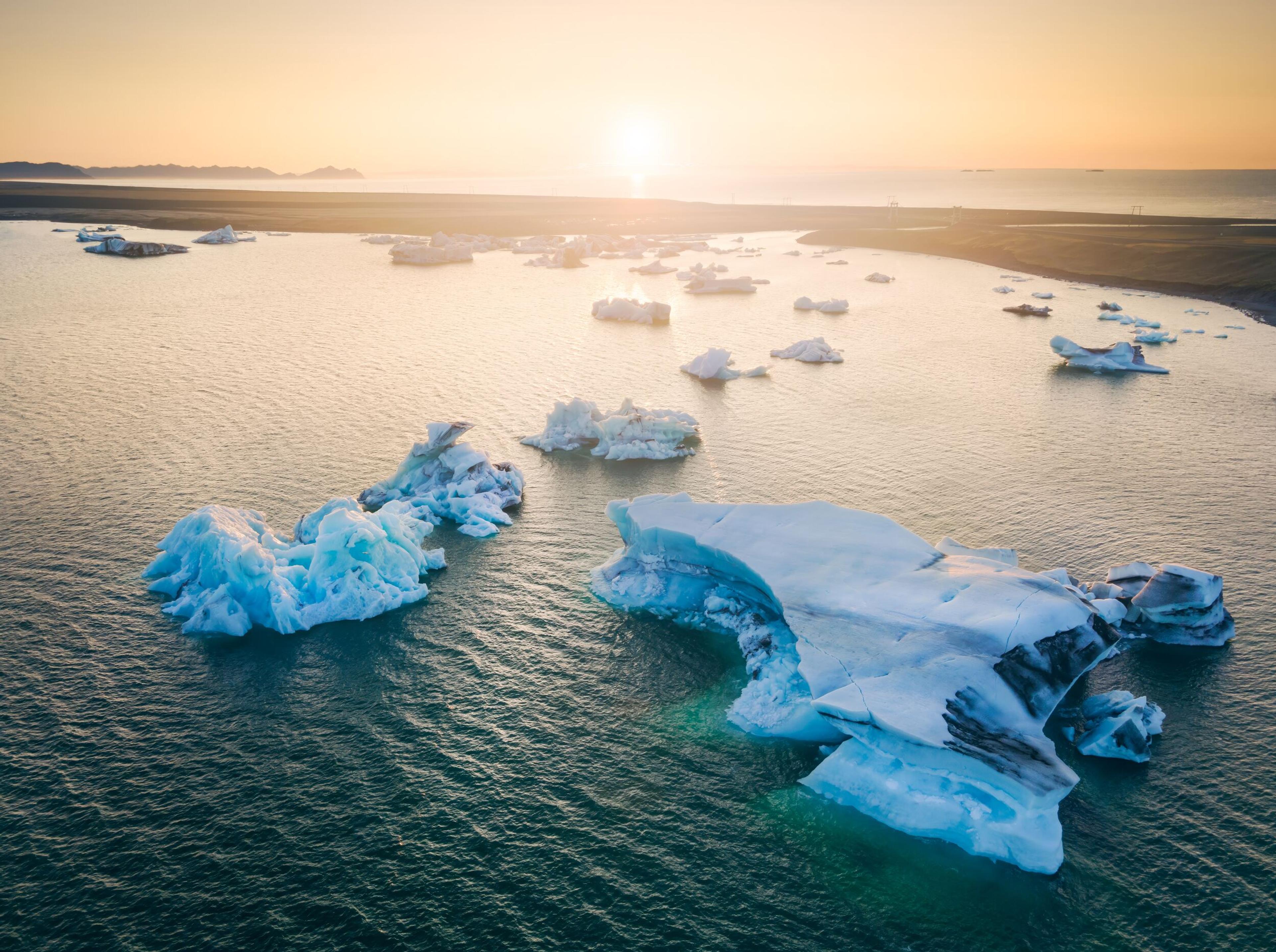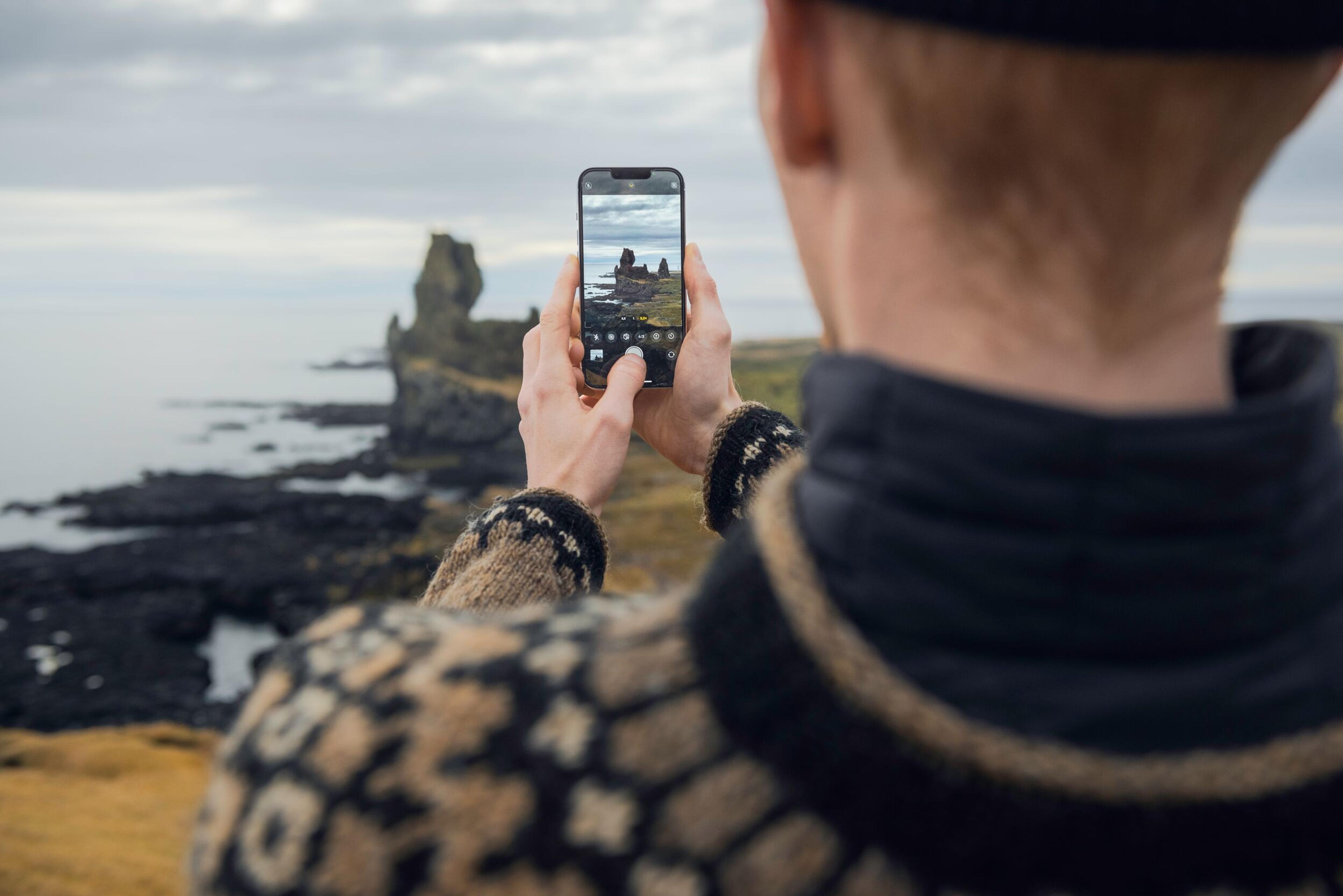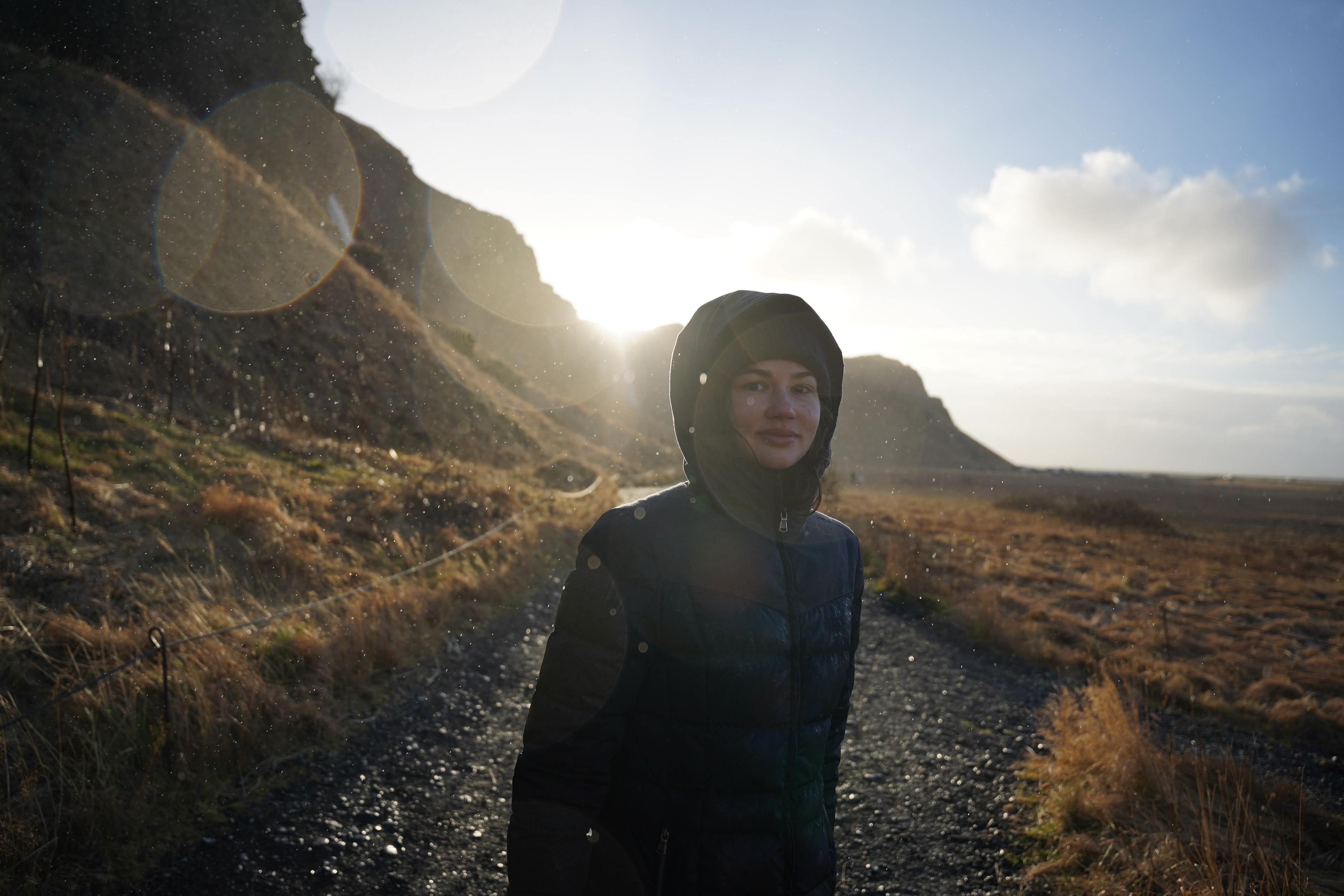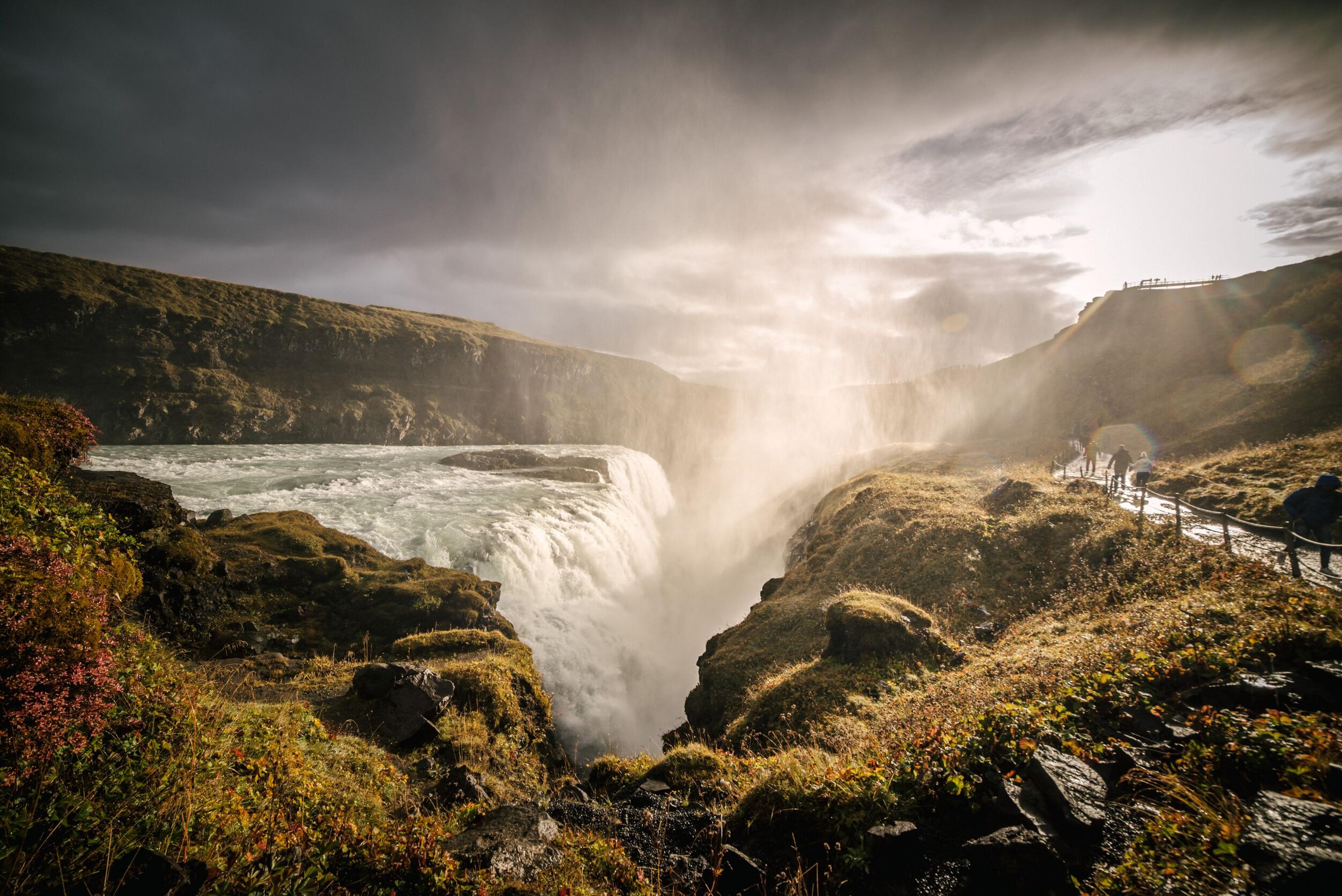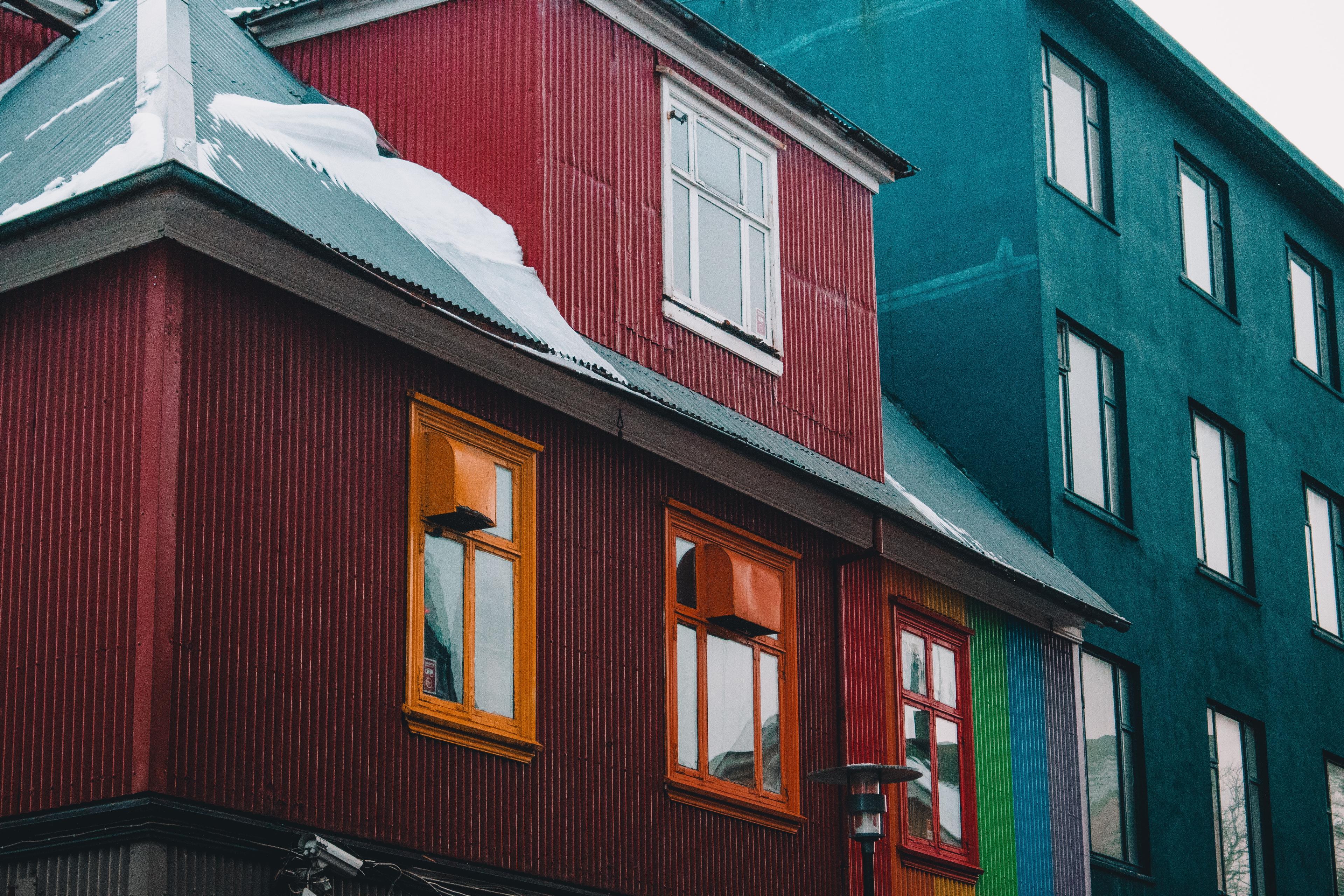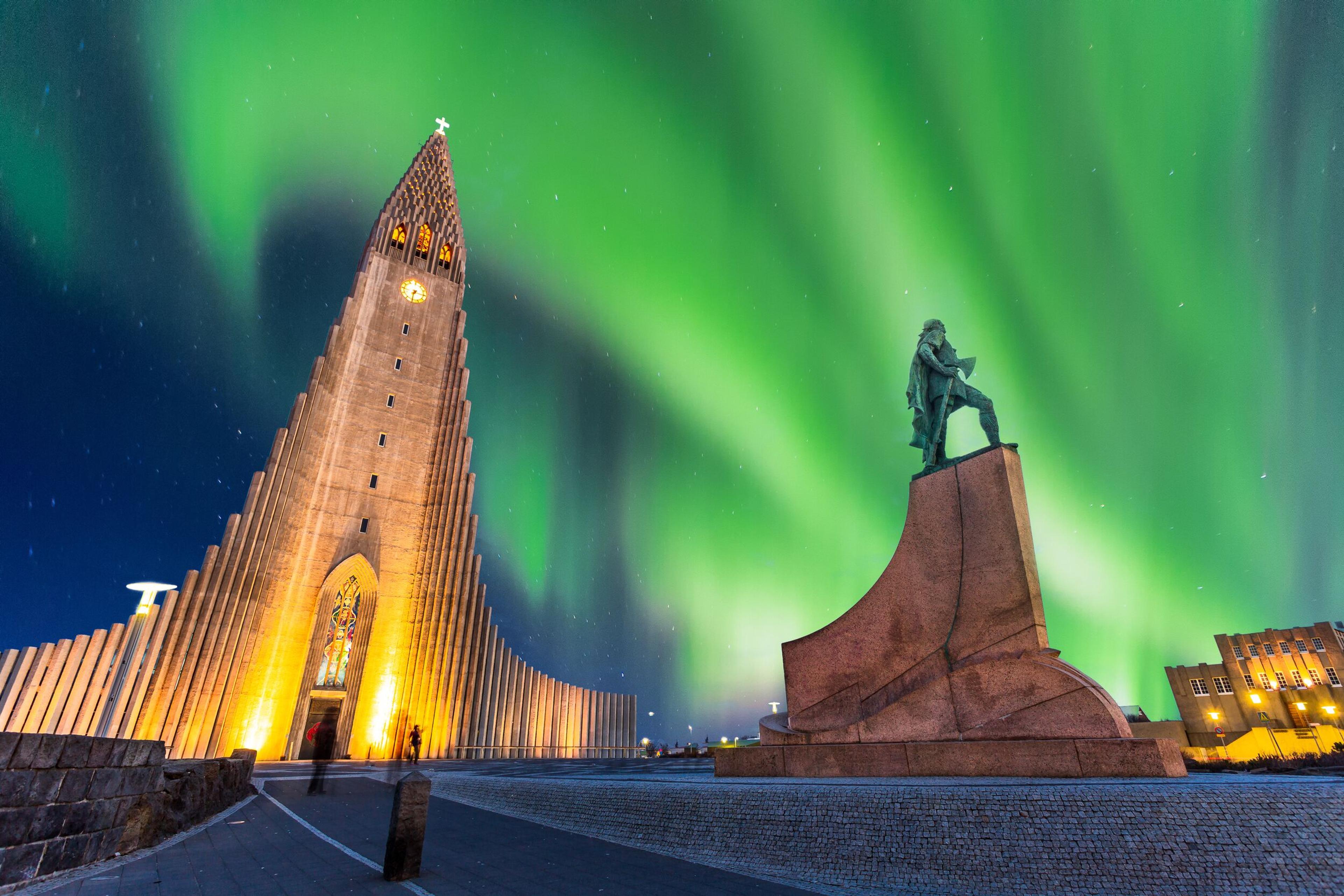2024 finds Iceland as vibrant and inviting as ever despite the occasional natural pyrotechnics of our active landscape. The Reykjanes Peninsula has been particularly lively, with eruptions, like the one near Grindavik shortly before Christmas, capturing global attention.
These geological stirrings have hardly put a damper on the Icelandic spirit or its readiness to welcome travellers. The renowned Blue Lagoon occasionally takes brief pauses due to volcanic activity nearby, only to welcome guests again once the environment is serene. The legendary spa, however, represents only a fraction of what Iceland has to offer.
Iceland's majestic landscapes, intriguing blue ice caves, sprawling glaciers, and the soothing warmth of natural hot springs invite. Our matchless nature, abundant with towering waterfalls and untamed trails, continues to promise adventure and tranquillity.
For those planning to visit in 2024, Iceland awaits with its unique blend of natural wonders and cultural vibrancy. Pack your sense of adventure and join us in exploring the enduring allure of Iceland!
What’s New in Iceland in 2024
Witnessing the Birth of New Terrains and Mountains
In Iceland, timeless beauty and ever-changing landscapes coexist and continue to evolve and surprise. The recent volcanic activity has reshaped parts of our terrain in ways that were unimaginable just three years ago.
The Fagradalsfjall eruption is a prime example of this dynamic transformation. It birthed a brand new mountain, complete with a thrilling crater. The resulting lava field, while solidified, is still emanating heat and showcases a spectrum of vibrant colours, thanks to the sulfur deposits. These newly formed landscapes, like the Fagradalsfjall lava fields, have become must-see spots for visitors, offering a glimpse of Iceland's youngest volcanic mountain.
However, nature's creativity doesn't stop there. New fissures have opened across the little town of Grindavík, altering the land profoundly. As of now, Grindavík remains closed to visitors, standing as a testament to the unpredictable nature of our island.
Yet, the future holds untold possibilities. By the end of this year, who knows what new marvels will have emerged? In Iceland, we are witnessing history being written by the earth itself, continually reminding us of the ever-present dance between creation and change.
Rediscovering Iceland's Hidden Thermal Treasures: Beyond the Blue Lagoon
The periods of temporary closures of the Blue Lagoon, one of Iceland's most famous attractions, have unexpectedly enriched our tourism landscape. Visitors are now venturing beyond the familiar and rediscovering Iceland's lesser-known hot springs and geothermal spas. This shift has brought a refreshing change, highlighting our country's diverse and often overlooked geothermal lagoons and pools.
From the serene waters of the Hvammsvík Hot Springs, Reykjavík’s luxurious Sky Lagoon to the charming geothermal pools in the Westfjords, each offers a unique experience steeped in natural beauty and tranquillity.
While there's certainly a collective eagerness for the Blue Lagoon's reopening, this period has reignited a love for the variety and charm of Iceland's many other geothermal gems. These 'new-old' spas, each with their own story and ambience, are gaining well-deserved recognition, adding depth to the Icelandic spa experience.
The Highlands of Iceland: A Rising Star in Adventure Tourism
The Icelandic Highlands, one of Europe's last great wilderness areas, are becoming increasingly accessible, thanks to various adventurous Super Jeep tours and the budget-friendly Highland bus. These rugged, expansive landscapes, once a challenge for most travellers to explore, are now within easier reach. The introduction of these tours has opened up a world of possibilities for those seeking to immerse themselves in Iceland's raw, unspoiled beauty.
Adding to this accessibility, the opening of the Highland Base Hotel last summer marks a significant milestone. This hotel, nestled amidst the stark and dramatic vistas of the Highlands, offers a comfortable and unique stay all year round.
With these developments, the Icelandic Highlands are no longer just a distant marvel on the map but a tangible, awe-inspiring destination for adventurers and nature lovers alike.
Off the Beaten Path: Iceland’s Hidden Gems and New Ice Caves
While iconic trails like Laugavegur continue to draw hikers from around the globe, there's a growing curiosity for Iceland's lesser-known paths. These off-the-beaten-path trails, especially those around the same region as Laugavegur, are gaining popularity among those seeking a more secluded and authentic Icelandic hiking experience.
The allure of these hidden trails lies in the untouched beauty they offer. They wind through stark and lush landscapes, leading to serene vistas and unexplored corners of the island. These paths provide a unique opportunity to connect with the raw nature of Iceland, away from the more frequented routes.
Adding to the allure of Iceland's hidden treasures are the newly discovered ice caves, like the Askur Ice Cave on Myrdalsjokull glacier. The transient nature of ice caves makes them particularly fascinating, as each year brings forth new formations, each with its unique characteristics and beauty. These caves offer a glimpse into the ever-changing world beneath Iceland's glaciers, a world of stunning blue ice and incredible formations sculpted by nature.
The discovery of new caves like Askur provides a fresh and exhilarating experience even for repeat visitors. Exploring these caves is like stepping into a different realm, where the play of light and ice creates an ethereal atmosphere. Each visit is a once-in-a-lifetime adventure, as the shifting glaciers ensure that no two experiences are ever the same.
A Shift in Travel Trends: The New Wave of Thoughtful Explorers
In the wake of COVID-19, we're witnessing a heartening shift in travel behaviour. Travellers are increasingly choosing to spend longer periods at single destinations, a trend reshaping the tourism landscape in wonderful ways. This change in pace allows visitors to immerse themselves more deeply in the local nature and culture, embracing the essence of a destination rather than merely skimming its surface.
This slow travel movement is a boon for both the travellers and the local communities. Visitors get to absorb the peace and richness of the Icelandic environment and culture more fully, while the communities benefit from the sustained economic and social engagement.
We in Iceland are particularly fond of our environmentally conscious guests who show a deep appreciation for nature and authentic experiences. Their respectful engagement with our landscapes and culture not only enriches their travel experience but also helps preserve the pristine nature of our homeland.
Many visitors now opt for environmentally cautious vacations, aligning with our values of sustainability and conservation. We see a rising preference for coach tours over self-driving, which promotes a more communal and eco-friendly travel experience. For those who prefer the independence of self-driving, the option to travel completely CO2-neutral is now available, aligning with Iceland's commitment to environmental sustainability.
Expanding Horizons: Iceland's Growing Array of Adventure Tours
In recent years, Iceland has seen a surge in the variety of adventure tours available, catering to the increasing demand for thrilling and unique experiences. Thanks to the country's rugged terrains and diverse landscapes, adventure-seekers have never had more options to explore and enjoy the natural beauty of Iceland.
Innovative tour operators are now combining activities for a more dynamic experience. Imagine getting on a snowmobile to explore ice caves, or mixing an ATV adventure with a South Coast sightseeing tour. These multi-activity tours are designed to provide a hassle-free experience, allowing visitors to immerse themselves fully in the adventure without worrying about logistics.
The expansion of adventure tours in Iceland reflects a broader trend in travel – the desire for immersive and dynamic experiences. As more travellers seek out activities that combine thrill with natural beauty, Iceland continues to evolve, offering an ever-growing range of adventures that cater to this new wave of explorers.
2024 is The Year of Spectacular Northern Lights in Iceland
Finally, and perhaps most compellingly, 2024 presents an unrivalled opportunity to witness the Northern Lights in Iceland, anticipated to be the most spectacular display of the decade.
Forecasters and experts are abuzz with excitement, predicting an exceptional Northern Lights season in 2024 that potentially extends into the next 2-3 years. For those dreaming of basking under the mesmerizing celestial dance of auroras, there's no better time than now to head to Iceland!
Northern Lights, or 'auroras', are the result of a cosmic ballet, where charged particles from the Sun interact with Earth's magnetic field. This interaction is heightened during periods of intense solar activity, leading to more frequent and vibrant auroral displays. And with the Sun entering a phase of peak activity, known as the Solar Maximum, the upcoming seasons promise to be particularly dazzling.
The early signs of this solar uptick have already been observed, including a surge in sunspots and solar flares, as well as rare solar phenomena that have intrigued astronomers. This heightened solar activity means that the auroras will be more vivid, frequent, and even visible in locations where they're typically rare.
For travellers planning to visit Iceland in 2024, this is a once-in-a-lifetime opportunity to witness one of nature's most awe-inspiring displays.
Practical Information for 2024 Travelers: Best Times to Visit Iceland
As you plan your 2024 Icelandic adventure, choosing the right time to visit is key to making the most of your trip. Iceland offers distinct experiences throughout the year, each season bringing its unique charm and opportunities.
Winter (January to March): Winter in Iceland is magical, with snow-covered landscapes and fewer tourists. It's the best time for Northern Lights viewing, and for unique winter activities like ice cave tours, skiing and snowmobiling.
Spring (April to June): Spring is a time of awakening in Iceland. The days get longer, and the landscape begins to bloom. This is an excellent time for birdwatching, especially puffins, and for witnessing the melting snow reveal new landscapes. Crowds are fewer, making it ideal for those seeking a more peaceful experience.
Summer (July to August): Summer is peak tourist season, marked by the Midnight Sun, where the sun barely sets. The mild weather and extended daylight hours are perfect for hiking, wildlife tours, and exploring the Highlands. It’s also the season for vibrant cultural festivals across the country.
Autumn (September to October): As autumn arrives, the landscapes turn into a canvas of reds and golds. This is a fantastic time for photographers. It's also the beginning of the Northern Lights season, offering a chance to witness this spectacular natural phenomenon.
The Festive Season (November-December): In November and December, Iceland transforms into a winter wonderland, perfect for the festive season. The country is quieter, offering a serene setting for holiday celebrations and the awe-inspiring Northern Lights. Reykjavik lights up with festive markets and traditional Yuletide stories, while unique activities like ice cave explorations and glacier hikes showcase the stunning, snow-covered landscapes.
Travel Tips for 2024
Book in Advance: With Iceland's growing popularity, booking accommodations and tours well in advance is recommended, especially during the peak summer months.
Weather Preparedness: Icelandic weather can be unpredictable. Pack suitable clothing and check the weather forecasts regularly.
Driving in Iceland: If self-driving, be prepared for varying road conditions and always follow local driving regulations.
Each season in Iceland offers something special, so the best time to visit largely depends on what you want to experience. Whether it’s the vibrant summer festivals, the tranquillity of spring, the Northern Lights in autumn and winter, or the unique adventures available year-round, Iceland in 2024 promises an unforgettable journey.
In 2024, Iceland remains an enchanting destination, offering a blend of dramatic landscapes, serene geothermal spas, and the raw beauty of its Highlands. The anticipated Northern Lights season adds to its allure, promising a spectacle of nature's magnificence.
With a shift towards sustainable and immersive travel experiences, visitors can look forward to a journey that's not only about exploring Iceland's natural wonders but also about embracing responsible tourism. As the year unfolds, Iceland invites you to be part of its story, a land where each season brings its unique charm and unforgettable experiences. Get ready for an Icelandic adventure that stays with you long after you've returned home.
Events and Festivals in Iceland in 2024
Throughout the year, Iceland hosts a plethora of events and festivals celebrating everything from music and film to fashion and sports. The summer months are bustling with town festivals that draw crowds across the nation, marking the high points of the event schedule. Conversely, winter shifts the spotlight to outdoor sports, arts, and a variety of cultural happenings. Here is a list of the best events of the year:
January
Dark Music Days, 24-28 of January. Founded in 1980 by the Society of Icelandic Composers, Dark Music Days is a vital Reykjavík festival showcasing pioneering contemporary music and fostering innovation within Iceland's musical community during the winter's darkest period.
February
Winter Lights Festival, 1-3 February. Celebrating the return of longer daylight periods, the Winter Lights festival celebrates the contrast between light and darkness. It consists of three main pillars: Museum Night, Pool Night and Light Art, together with over 150 events where a number of artists participate in creating a unique atmosphere in the city.
March
The Annual Icelandic Beer Festival, 1st of March. The consumption of beer was prohibited in Iceland from 1915 until the 1st of March 1989. This day marks the Icelandic Beer Day, now extended into a multi-day festival. The event celebrated in this form since 2012, honours Iceland's finest beers and select international brews.
Food & Fun Festival, 1-4 March. Launched in 2002 to boost winter tourism, the Food & Fun Festival has evolved into an esteemed annual culinary event, pairing international chefs with local restaurants to create exquisite dining experiences.
Aldrei fór ég suður, 29-30 March. Aldrei fór ég suður, "I never went south," is an annual music festival that has been held during Easter in Ísafjörður town, in North-west Iceland, every year since 2004. It started off as a one-night event but has been growing ever since. Since its establishment, there has never been an entry fee] to the festival, and the bands are not paid.
April
Stockfish Festival, 4-14 April. Founded in 2015 as a successor to the 1978 Reykjavík Film Festival, Stockfish Film Festival fosters collaboration between film communities and offers art-house films in partnerships with major Icelandic film associations at Reykjavík's Bíó Paradís.
The Reykjavík International Literary Festival, 19-23 April. Since 1985, the Reykjavík International Literary Festival has drawn global authors and readers with its varied programs like readings, discussions, and workshops, all emphasizing accessibility, freedom of expression, and human rights, with free public access and live streaming.
Design March, 24-28 April. Reykjavík's DesignMarch festival, now in its sixteenth year, transforms the city into a hub of creativity, showcasing everything from fashion to digital design, with over 100 events including the signature DesignTalks at Harpa, offering insights into Iceland's thriving design scene.
Iceland Writers Retreat, April 24-28. The annual Iceland Writers and Readers Retreat offers a mix of intimate writing workshops, author-led book talks, and literary tours, culminating in a faculty reading and a Q&A panel for all attendees.
May
International Museum Day, 18 of May. Many Icelandic museums are welcoming guests with special events or free admission.
June
The National Day of Iceland, June 17, is a major national celebration with parades, concerts, street theatre, dance parties, circus, food trucks, and vintage car shows, just to name a few, across the whole country.
Fishermen's Day, 4th of June. Celebrated since 1938 and a legal holiday for fishermen since 1987, Fishermen's Day, usually on the first Sunday in June, honours Iceland's maritime heritage with countrywide sea-themed festivities, including sailing, sea swimming, and showcasing marine life, fostering solidarity among fishermen.
The Color Run, 8th of June. The Color Run is a vibrant, fun-filled event, part of an international series known as the "Happiest 5k on the Planet." It's a five-kilometre, untimed race where participants, dressed in white at the start line, are doused from head to toe in different colours at each kilometre.
Viking Festival Hafnarfjörður, 13-18 June. The Hafnarfjörður Viking Festival, Iceland's oldest and largest of its kind, transforms Víðistaðatún Park into a vibrant Viking market featuring crafts, food, and various Viking-era activities, with free admission.
RUSLfest, 27. June - 02 July. RUSL, a sustainable design festival promotes circular thinking in art, design, and culture through a week of workshops, lectures, exhibitions, and social events.
Reykjavik Arts Festival, 1-16 June. The Reykjavík Arts Festival showcases exceptional global art, fostering a dynamic connection with audiences by embracing inclusivity and accessibility, with a commitment to environmental respect and a programming ethos of courage, professionalism, joy, and visionary thinking.
July
Eistnaflug Music Festival, July. Eistnaflug is a three-day rock and heavy metal festival, the biggest of a kind in Iceland, held in an isolated fjord in the east.
Folk Music Festival in Siglufjörður, 3-7 July. The Folk Music Centre in Siglufjörður presents Icelandic folk music in an accessible and entertaining manner through video recordings of people old and young singing folk songs and playing traditional instruments.
The National Icelandic Horse Competition, 1-7 July. The National Icelandic Horse Competition, known to Icelanders as the “Landsmót”, is Iceland's largest outdoor sporting event, showcasing Iceland’s best horses and riders.
LungA Art Festival in Seyðisfjörður, 10-16 July. LungA is an intimate art festival in East Iceland, celebrated through workshops, lectures, and events. It culminates in a vibrant final weekend of exhibitions and concerts. Renowned locally and internationally for its ambiance and quality workshops, LungA fosters joy, self-discovery, and lasting connections.
Laugavegur Ultra Marathon, 13th of July. The Laugavegur trail is located in the southern highlands of Iceland and is famously one of the most beautiful hiking trails in the world. For many runners, the Laugavegur Ultra Marathon is a bucket-list race. The course is 55 km long and takes runners through areas of outstanding natural beauty.
Kótelettan, Sellfoss, July. Kótelettan is a famuly and musicfestival in Sellfoss. The festival offers a diverse lineup of performances and creative workshops, creating an atmosphere of celebration and artistic expression.
August
Þjóðhátíð in Westmann islands, August 1–3. Þjóðhátíð is an iconic Icelandic festival, a cornerstone of Icelandic culture, renowned for its vibrant mix of live music, spectacular fireworks, and bonfires, drawing a lively crowd that revels in the unique blend of cultural heritage and modern festivities amidst the stunning natural beauty of the islands.
Norðanpaunk Festival in Laugarbakki, 2-8 August. Norðanpaunk is a distinct punk music festival, celebrated for its grassroots approach to music and arts. Known for its DIY ethos and community-driven spirit, the festival showcases a diverse array of punk, hardcore, experimental music, and various art forms.
Reykjavík Pride, 6-11 August. The Reykjavík Pride is a vibrant celebration of the LGBTQ+ community in Iceland's capital. Renowned for its colourful parade, engaging cultural events, and strong sense of community, the festival champions diversity and equality and stands as a joyful expression of love and acceptance, drawing participants and supporters from across the globe to Reykjavík's welcoming streets.
Culture Night, 24. August. Reykjavík's most significant birthday and city festival, Culture Night, is the summer's highlight, as fun events colour life in the city centre from morning to night. The festival is for all city residents and visitors who want to participate in the festival and have fun.
Reykjavík Marathon, 24. August. The Reykjavik Marathon is a scenic and popular running event in Iceland's capital, attracting athletes and enthusiasts from around the world to participate in various distances against the backdrop of Reykjavik's beautiful urban landscapes.
September
Reykjavík International Film Festival, Sept. 26 - Oct. 06. The Reykjavík International Film Festival is a prestigious annual event showcasing a diverse range of innovative and creative films from Iceland and around the world, offering a platform for emerging and established filmmakers to present their work in the culturally rich and vibrant setting of Iceland's capital.
Night of Lights, 7-8. September. The Night of Lights is a cultural and family-oriented festival in Iceland, celebrated for illuminating the coming dark winter nights with a spectacular array of lights, music, and arts, creating a magical atmosphere that brings communities together in a joyful and enchanting celebration.
Reykjavík jazz festival, September. The renowned event celebrates the rich world of jazz music, featuring an impressive lineup of local and international artists and offering diverse performances that highlight the genre's versatility and cultural significance in the heart of Iceland's capital.
October
The Imagine Peace Tower lights up. The Imagine Peace Tower light-up event in Iceland is a poignant and visually stunning tribute to peace and the memory of John Lennon, conceived by Yoko Ono. This annual event features the lighting of a powerful beam of light into the sky, symbolizing unity, peace, and Lennon's enduring legacy, drawing visitors from around the world to share in this moment of reflection and hope.
November
Northern Wave International Film Festival, November. This vibrant festival celebrates nordic cinematic art, showcasing an eclectic mix of international and local films, fostering creative exchange and offering a platform for emerging and established filmmakers in a uniquely inspiring setting.
Iceland Airwaves, 7-9 November. The Iceland Airwaves is a renowned annual music festival held in Reykjavík, known for its eclectic mix of emerging and established artists from Iceland and around the world, offering an intimate and vibrant showcase of diverse music genres in the lively atmosphere of Iceland's capital.
December
Christmas and the Yule Lads. In December, Iceland transforms into a festive wonderland, celebrating Christmas with the unique tradition of the Yule Lads, mischievous yet charming figures from Icelandic folklore who add a distinct and joyous character to the holiday season. Learn more about it in his article.
New Year's Eve. On New Year's Eve, Iceland lights up with spectacular fireworks and lively celebrations as locals and visitors alike gather to welcome the new year with a blend of traditional customs and exuberant festivities, creating an unforgettable atmosphere across the country.
The New Year's Eve Run is a spirited event where participants ring in the new year with energy and enthusiasm, running through the festively lit streets in a celebration that combines fitness, fun, and the excitement of the countdown to midnight.
Questions About Visiting Iceland in 2024
2024 is a special time for visiting Iceland due to the forecasted Solar Maximum, promising an extraordinary Northern Lights season. Additionally, the chance to explore new geological wonders from recent volcanic activity.
The winter months are ideal for the Northern Lights, while summer offers the Midnight Sun and better conditions for hiking and exploring the Highlands.
Winter (January to March): During the Icelandic winter, the landscape is blanketed in snow, creating a serene and less crowded environment. This season provides optimal conditions for observing the Aurora Borealis and participating in distinctive winter pursuits such as touring ice caves, skiing, and snowmobiling.
Spring (April to June): In the Icelandic springtime, nature reawakens with lengthening days and the thawing of winter's touch, offering a vibrant rebirth of flora. Bird enthusiasts will delight in the abundance of avian activity, particularly the puffins, amidst the emerging vistas, all in a tranquil atmosphere with minimal tourist activity.
Summer (July to August): The height of the Icelandic summer, distinguished by the perpetual twilight of the Midnight Sun, invites endless opportunities for hiking, engaging in wildlife excursions, and venturing into the rugged Highlands. This period is also ripe with cultural celebrations, with the entire nation buzzing with festivals.
Autumn (September to October): The Icelandic fall paints the environment in warm hues, creating a picturesque setting ideal for photography enthusiasts. It signals the onset of the Northern Lights season, presenting another chance to witness this magnificent celestial display.
The Festive Season (November-December): As the year winds down, Iceland dons a festive guise, offering a tranquil ambiance ideal for holiday festivities and witnessing the Northern Lights. Reykjavik glimmers with holiday markets and festive lore, while the natural landscape invites explorations of ice caves and glacier treks across the snowy terrain.
As of 2024, Iceland has no COVID-19 travel restrictions, allowing unrestricted entry and travel within the country.
A superb itinerary for Iceland in 2024 would encompass the majestic waterfalls and black sand beaches along the South Coast, the wonders of the Golden Circle, exploring the ethereal beauty of ice caves, and engaging in adventure tours. To top it off, schedule evenings for Northern Lights hunts or days for hiking through Iceland's dramatic landscapes, depending on the season, to fully embrace the Icelandic spirit of adventure.
Due to increased solar activity, 2024 is expected to be an excellent year to witness the Northern Lights in Iceland. The country is expected to experience heightened auroral activity thanks to the Solar Maximum, a period of peak solar activity that enhances the frequency and intensity of the auroras, making them more vivid and widespread across the Icelandic skies.
The number of days needed can vary widely, but a typical visit could take 7 to 10 days to take in a diverse range of experiences. Add a few more days in winter due to shorter daylight periods.
A good itinerary in 2024 might span a week to twelve days, allowing for a thorough exploration of key attractions, including the natural wonders and potential aurora viewing, depending on the season. If you'd like to travel around the whole island, give it two weeks or more for a comfortable travel and the chance to discover some hidden secrets.
The best outdoor activities in 2024 include glacier exploration and ice cave adventures, snowmobiling, riding buggies or ATVs, snorkeling or diving between tectonic plates, and, of course, hiking and trekking in the summer, or engaging in ski touring during the winter months.
Must-see attractions in 2024 include the newly formed volcanic terrains on the Reykjanes peninsula, the legendary attractions along the South Coast and on the Golden Circle, and, of course, the majestic glaciers.
The Northern Lights are expected to be visible across Iceland, with 2024 offering a particularly vibrant auroral display due to the Solar Maximum. In this article, we write about how to maximise your chances of success in catching the lights.
Absolutely. Iceland remains a family-friendly destination in 2024, with activities and sights that cater to all ages and interests.
The varied landscapes of the island present a fantastic opportunity to teach children about geology, the forces of nature, the importance of protecting our environment, and the many ways we can deeply connect with nature. Iceland is also an ideal playground for young children, offering a wealth of sensory experiences while being free from dangerous wildlife, harmful insects, and significant crime. The main consideration is the weather, especially outside of the summer months; however, Reykjavik offers a wide selection of indoor activities as well.
Yes, Iceland is typically considered to be an expensive destination. However, costs can be managed through meticulous planning, utilising the off-peak season for better rates, and watching for special offers from tour providers. To stay informed about potential savings, consider subscribing to our newsletter for notifications on upcoming promotions.
Related Articles
See all articlesRecommended tours
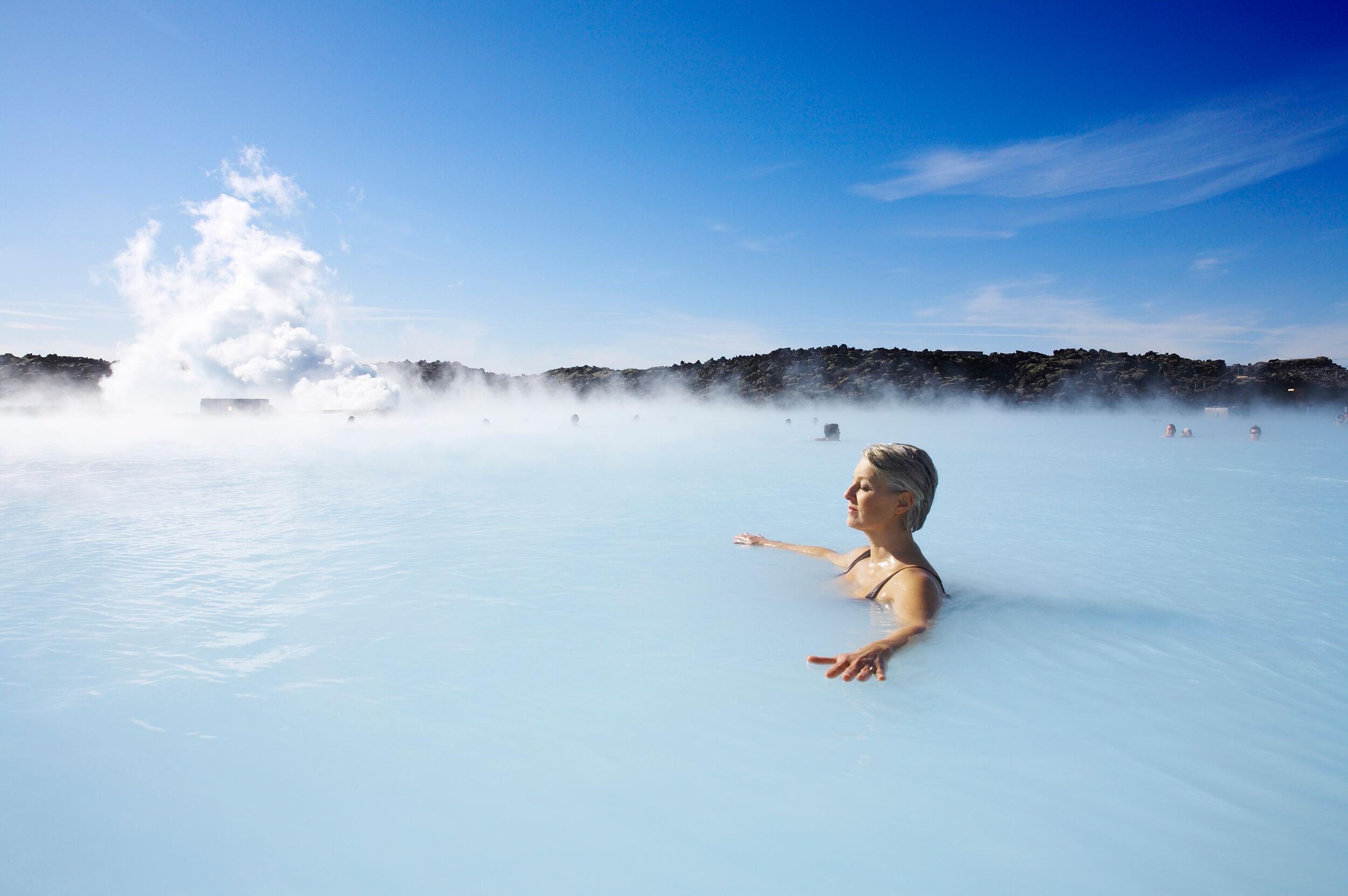
- Best seller
- Popular
Blue Lagoon & Northern Lights
Enjoy a perfect winter day in Iceland! Experience the best of Iceland with this package of two of the island’s most popular tours in one day! Soak in the milky blue healing water of the Blue Lagoon, which is one of Iceland's most famous tourist attractions and is considered by many to be a once-in-a-lifetime experience and an unmissable part of a visit to Iceland. After your return to Reykjavík, a guide will lead you on a search for the elusive northern lights! Watching the lights dance and flicker in the sky, changing shape and colour, is incredible. Prepare to be dazzled!
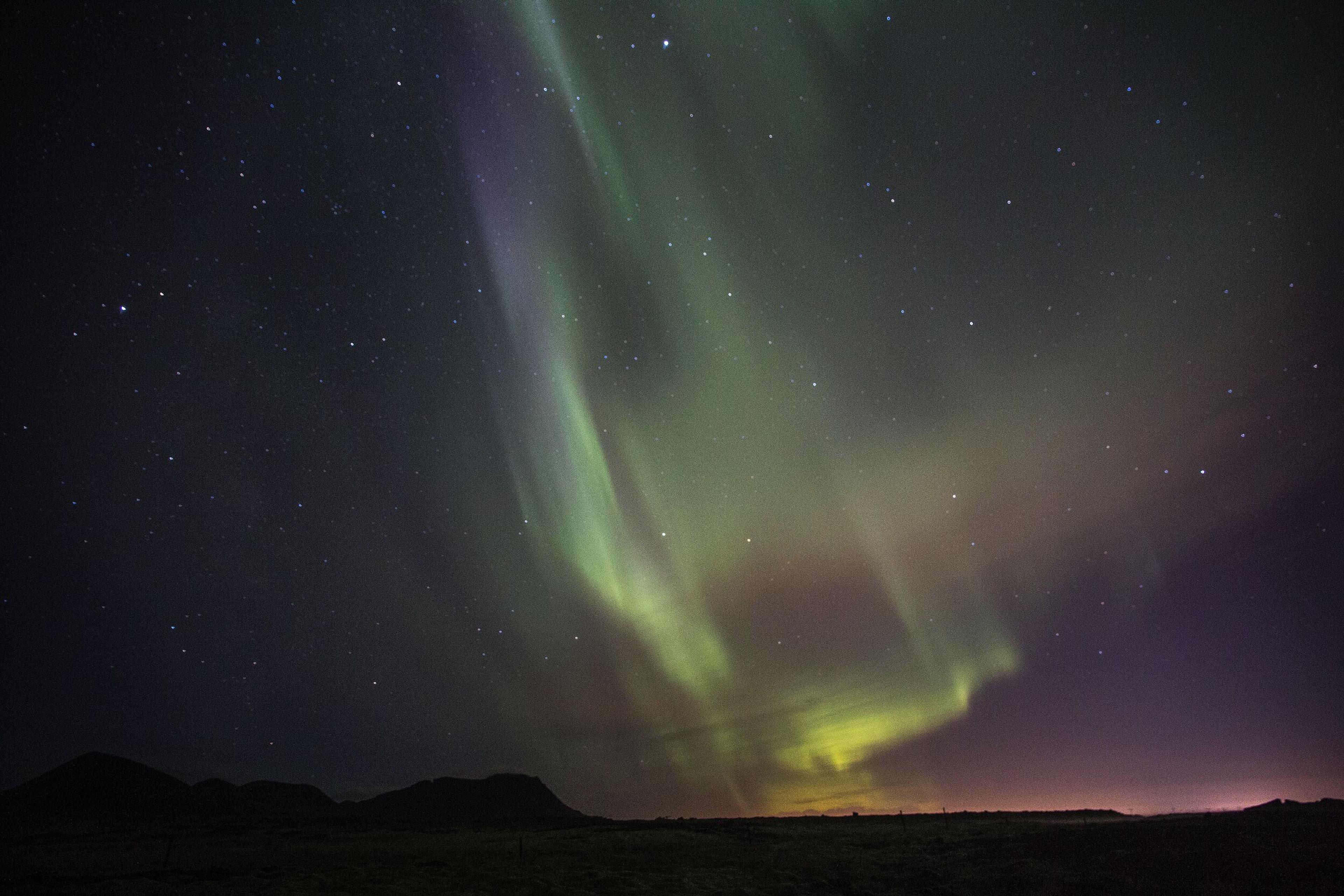
The Golden Circle & Northern Lights - Combo Deal
Want to see the sites of the Golden Circle and hunt for the northern lights but have a limited amount of time? Consider this express Golden Circle/Northern Lights tour! Experience the landmarks of the classic Golden Circle in South Iceland on this unforgettable day tour. The Golden Circle encompasses the must-see sights of Thingvellir National Park, the golden Gullfoss waterfall, and the bubbling geothermal region of Geysir. After your return to Reykjavík, a guide will lead you on a search for the elusive northern lights!
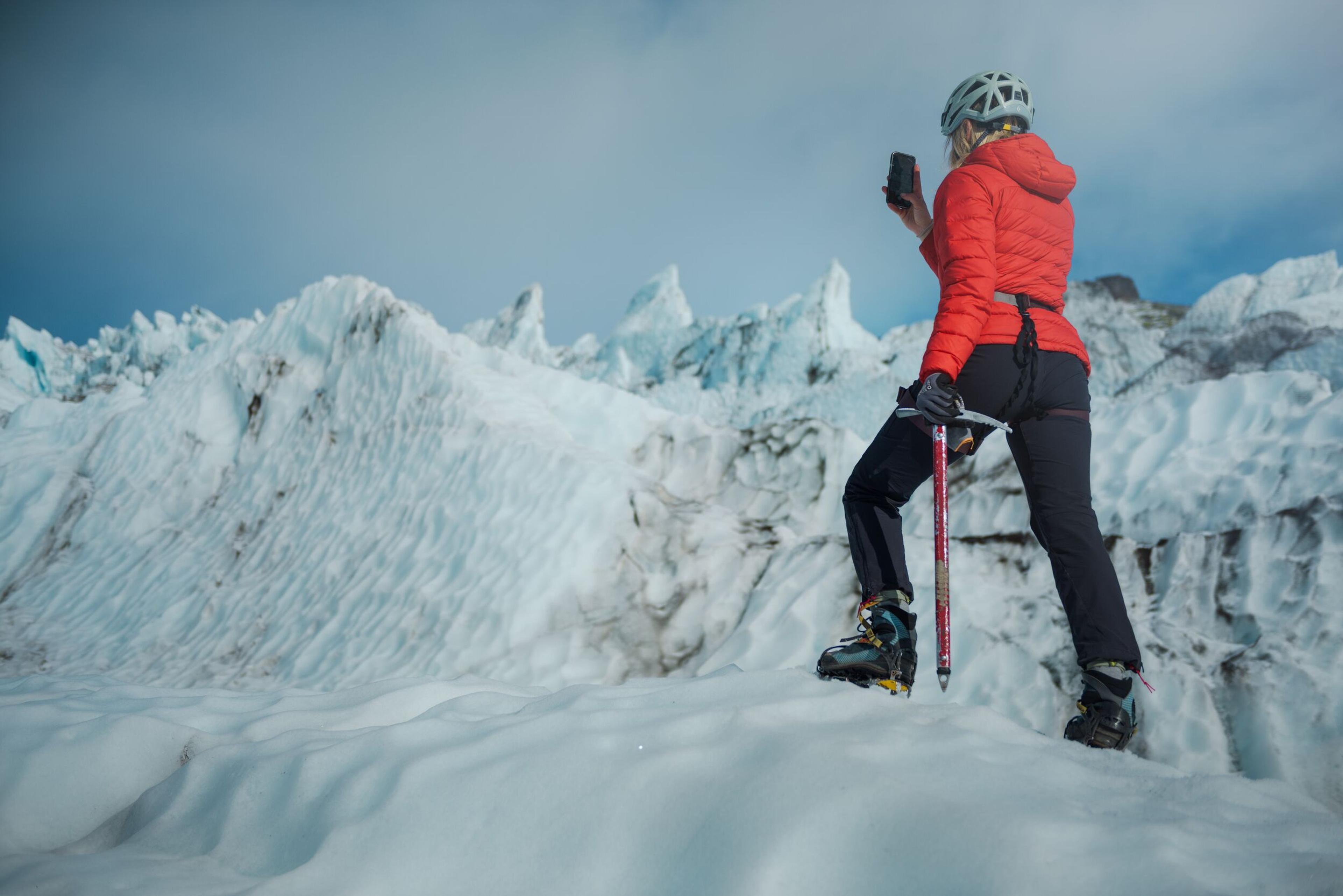
Glacier Adventure
Dive into an adventurous journey on one of Vatnajökull National Park's mesmerizing outlet glaciers. Our Glacier Adventure - Glacier Walk tour goes beyond the ordinary, offering a more extensive exploration of the glacier's captivating beauty.
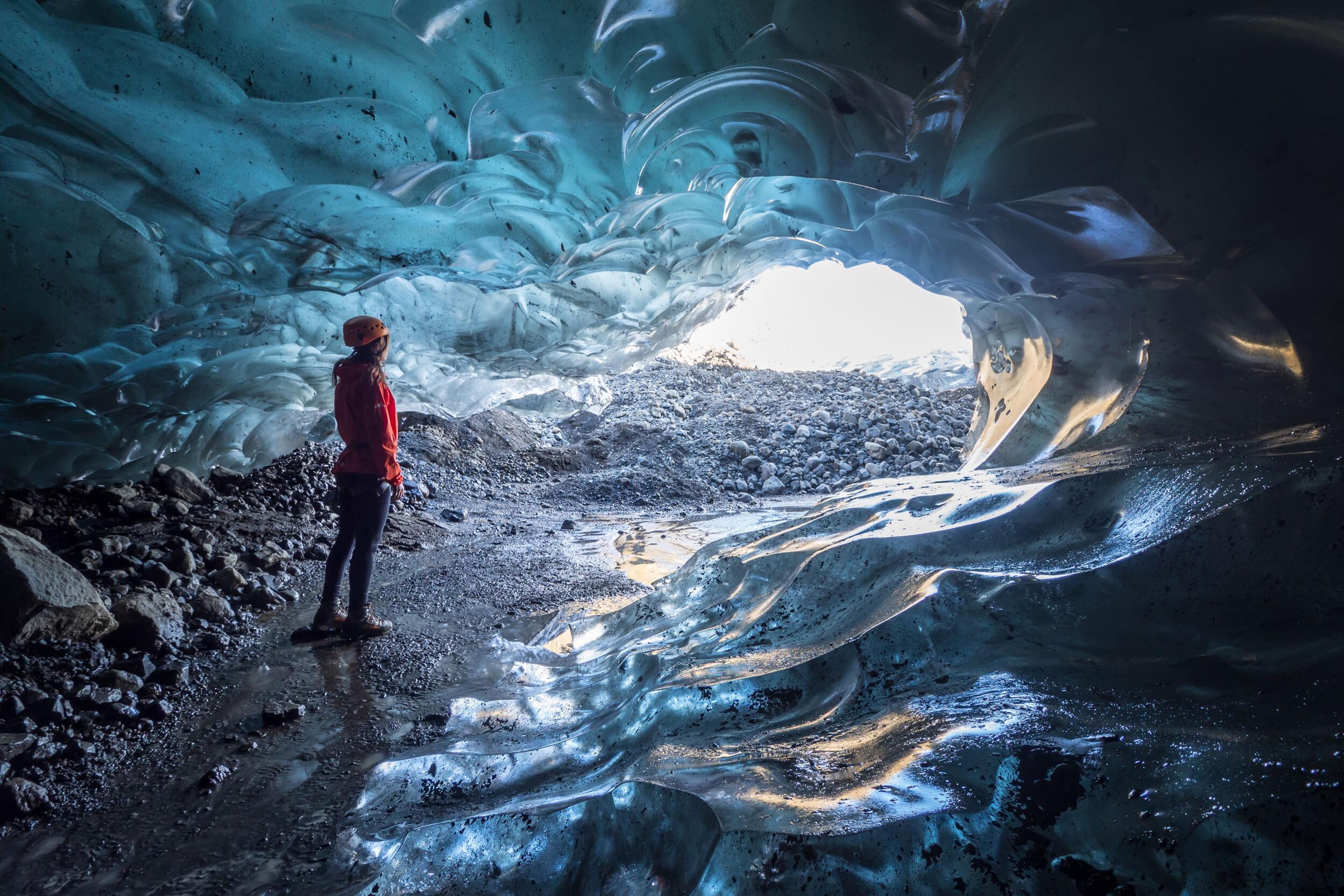
Ice Cave and Glacier Walk
Embark on an epic journey to discover the wonders of Iceland's natural scenery. Explore iconic waterfalls, stroll along stunning black sand beaches, and experience the majestic Jökulsárlón glacier lagoon, Iceland's crowning natural attraction. This adventure includes an exhilarating boat tour, navigating through towering icebergs, offering a unique and unforgettable perspective of Iceland's frozen beauty.
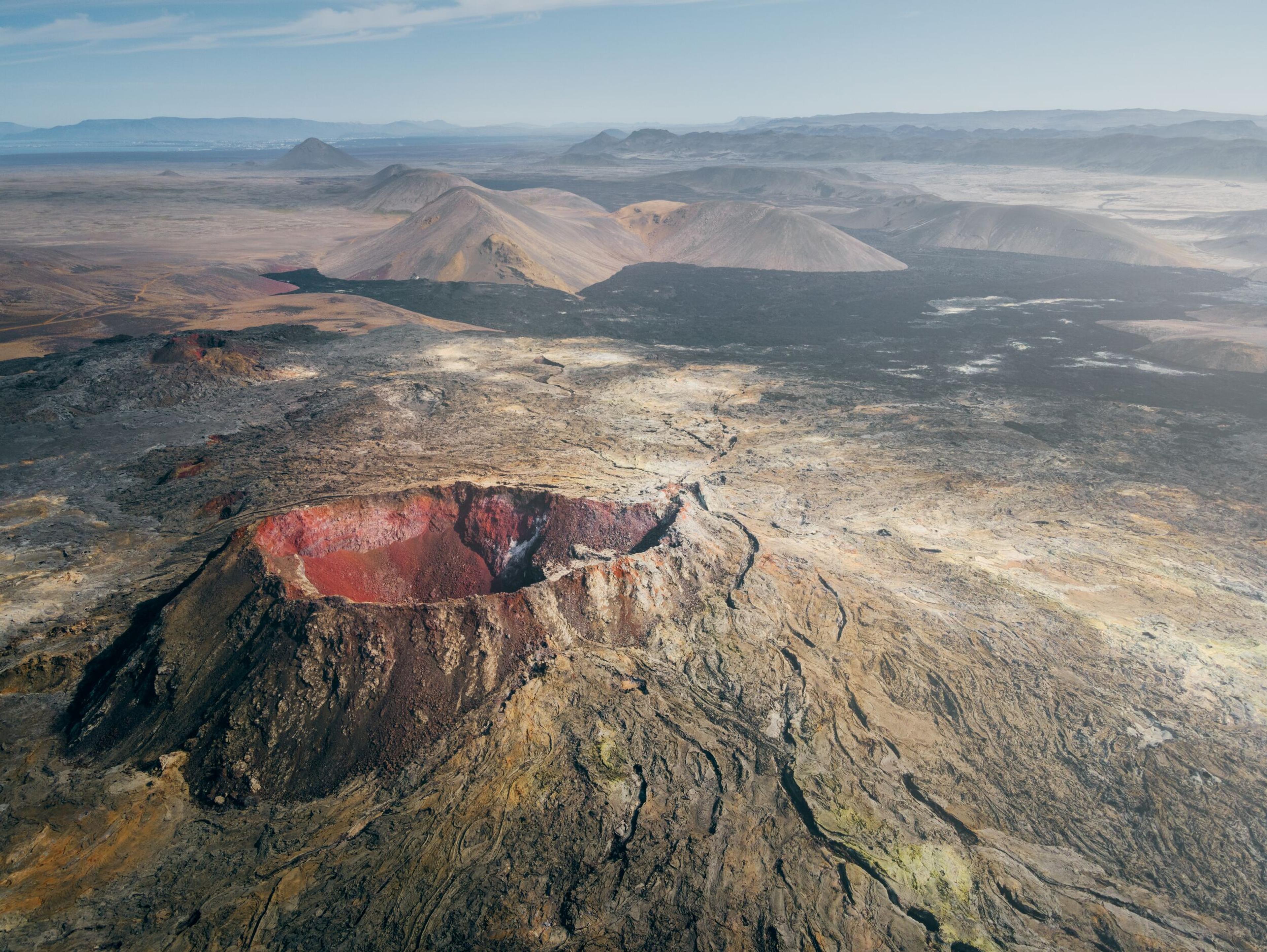
Volcanic Wonders & the Sky Lagoon
Discover Iceland's geothermal heart in the UNESCO recognized Reykjanes Geopark, a land that way created where continents drift apart. Journey through the awe-inspiring volcanic landscapes and explore the freshly-formed lava fields of Fagradalsfjall Volcano. Complete your day with a relaxing and rejuvenating spa experience at Reykjavík’s newest luxury bath, the Sky Lagoon.
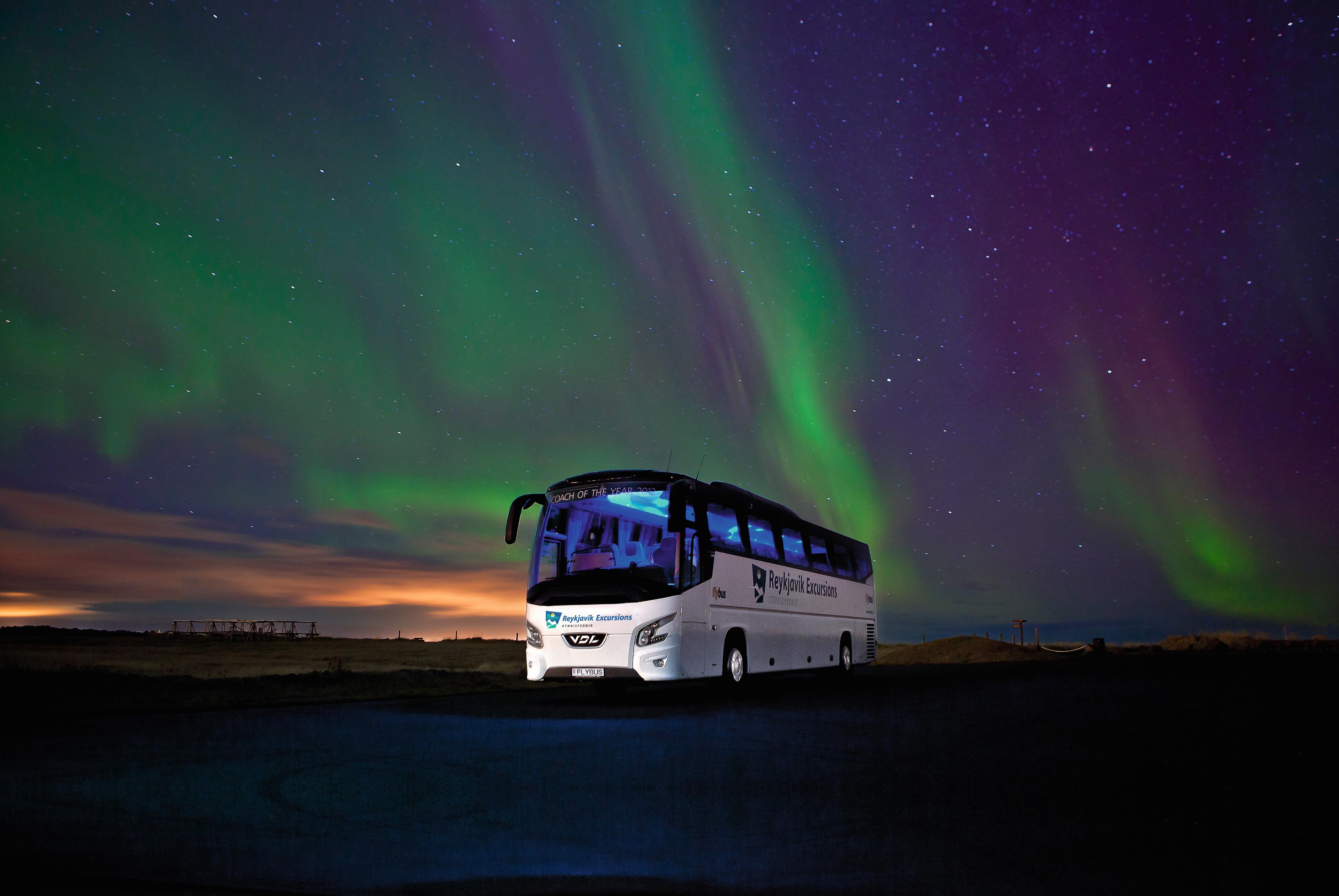
Northern Lights Tour
See the majestic Northern Lights dancing across the sky. If the skies are shy, try again free of charge as many times as you need until you see them! Learn about the phenomenon by visiting the Aurora Centre - Northern Lights Exhibition in Reykjavík; admission is included in this tour!


